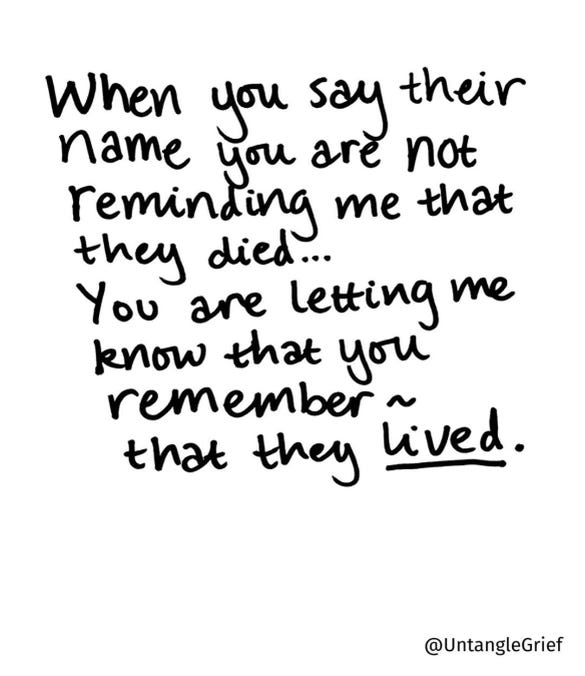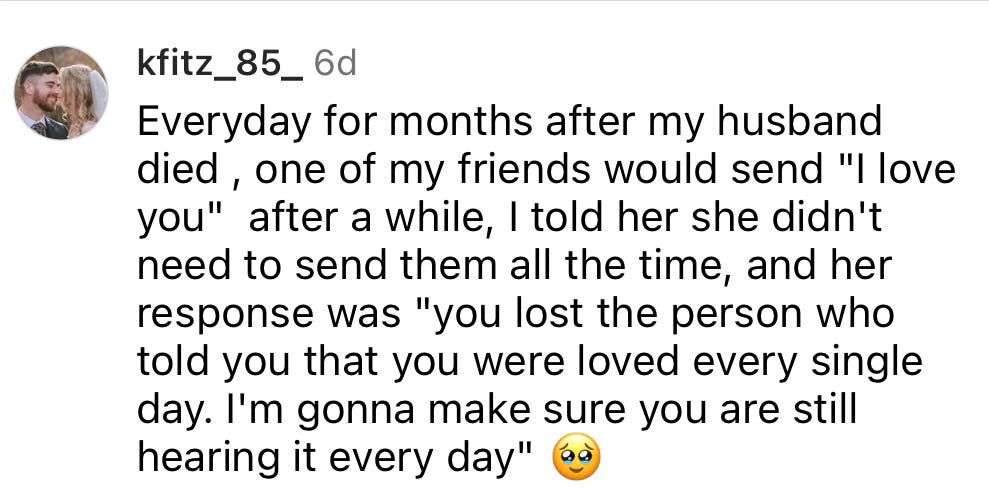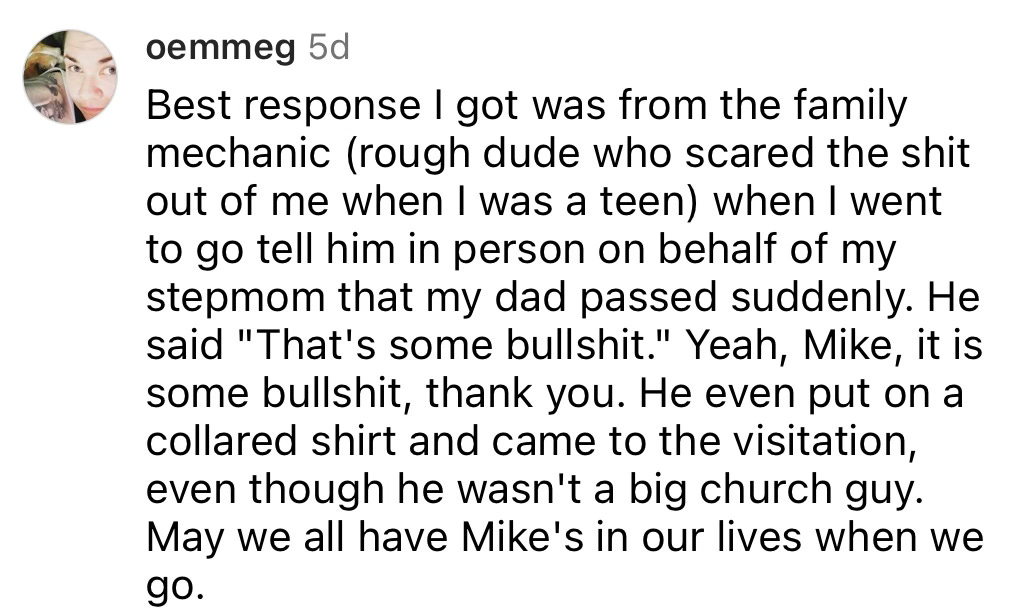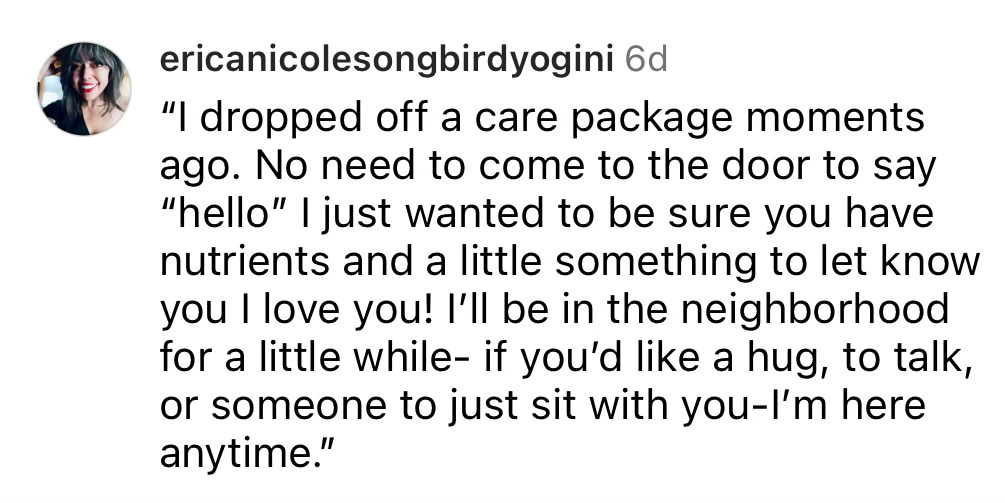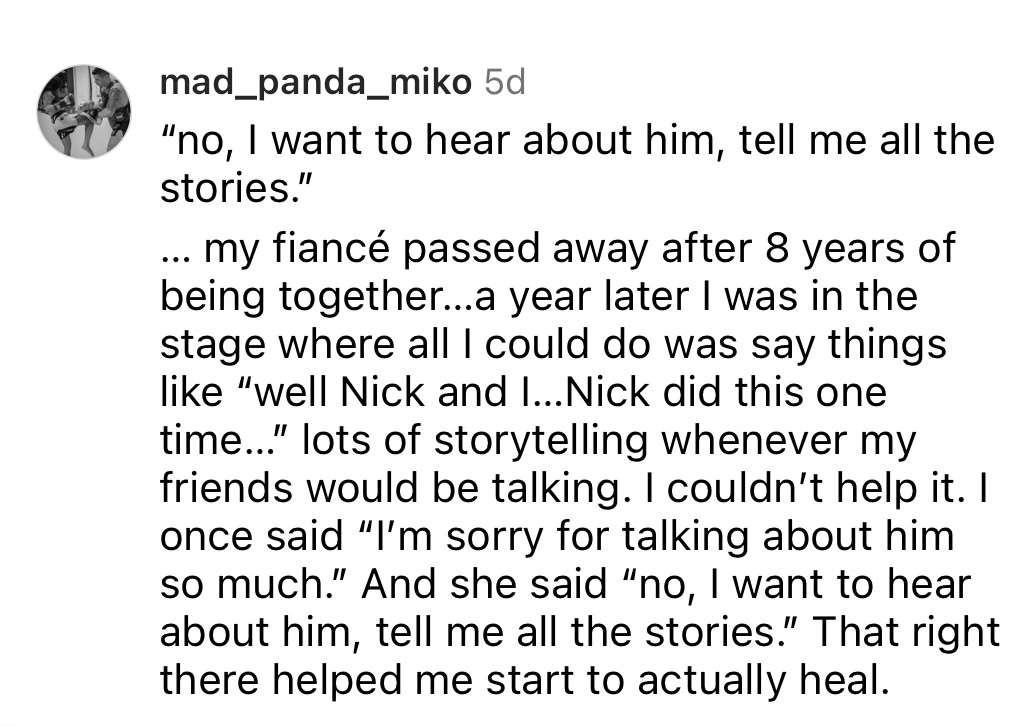One of the things we fear, overanalyze, then often freeze and don’t do at all, is properly express our sorrow for someone’s loss. Some worry bringing up the death will make the person feel sadder, others just don’t know what to say. Either way, reaching out, letting someone know you’re thinking of them, and giving a heartfelt expression of sorrow goes a long way with someone suffering.
What should you write in a message or condolences card?
A good place to start is to simply express how sorry you are for their loss.
Then aim to make your message personal - add their name and the name of the person they have lost.
If you knew the person, add special memories or favourite attributes of the person that come to mind. Stories and photos are always appreciated and help to help keep their memory alive.
If you didn’t know the person they have lost, you can read any linked memorials or obituaries and comment on what stood out for you or the legacies they leave behind.
We have been trained to try to take the pain away, but it’s best to avoid trying to help someone find the silver lining by saying things like “they are in a better place” right after a loss. It is ok to acknowledge that this really sucks and the person will be greatly missed. No positive words will change that their person is gone.
When in doubt, just say something to acknowledge the loss. Try, “They were loved and will be greatly missed.” Or simply let your friend know you are there for them and send your love.
And don’t just say something right when the person dies. People often appreciate hearing that you are thinking of the person they lost for years to come. It can be really meaningful to reach out on birthdays, anniversaries or ‘just because’ with a memory. They will be grieving the loss for a long time and it is always nice to not feel alone in it.
Continue to ask about and bring up loved ones to help keep their legacy alive.
There are some really lovely comments on what words helped on this Good Mourning Podcast post:
And this poem cheekily summarizes what not to say.
But Rabbi Steve Leder makes it simple with the two things you can do for those grieving:
Show Up
Be You
For more positive ideas on death and life follow @Papillonpassing and visit www.papillonpassing.com






